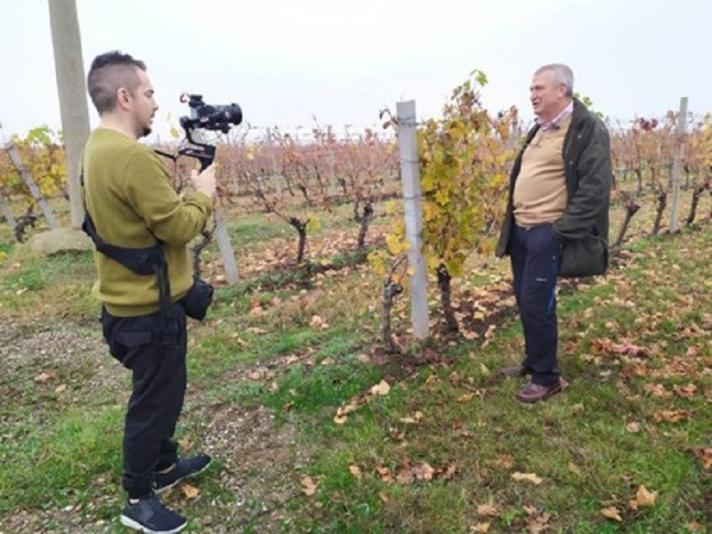Picture: José Javier Ocón Berango (right) is an expert in vineyard registration with the La Rioja Ministry of Agriculture (Spain).
In Romania, I worked with on the Twinning projects we ran between 2002 and 2007. The truth is, it has always been easy for me to talk about things and difficult to write about them; but this time it will be especially difficult because I don’t have to talk about things, I have to put my feelings into words.
Even now, 13 years after finishing the projects, I was still in contact with all of them, and I am not an exception in this, as this happens to all of us who participate in Twinning projects. The projects have ended, but we are left with friends, memories and above all the feeling that we are still there and that the work is continuing.
If you had asked me before what a friend is, I would have said a friend is someone who, if you haven’t spoken to them or seen them for a while, when you meet them again, you pick up your conversation as if you had seen each other the day before. This idea, which I had many years ago, has changed as a result of my experience in Romania and now I express it in the words of another friend, colleague and at one point my “BOSS” who led the first project we carried out in 2002, Enrique García-Escudero. With the friends/colleagues on the project in Romania we have been saying fond farewells for 13 years because we were no longer going to meet and 6 months later we had found a reason (or it was an excuse, I’m not sure) to get back together and carry out another activity together.
In short, the human relationships that were created on these projects have been one of the pleasures that have motivated us to work, and I have to say, to work hard, very hard, but nothing is difficult or hard if you enjoy doing it: as we say in Spanish “sarna con gusto no pica”, which roughly translates as “if you enjoy having scabies it doesn’t itch”.
But I must stress that also in these projects, specifically in the Romanian wine sector, we have had the joy of seeing how a sector was modernising, adapting to the European Union’s rules and with total success. How they have used their entry into the common market to adapt their production structures and modernise their sector to levels that are truly incredible, taking advantage of the opportunities presented to them when they entered the European Union to improve their production structure and see how the benefits of this were transferred to the employees and the population in the rural areas where the wine was produced. Vines are one of the crops that, due to the need for a permanent workforce, brings more population to rural areas, and this is a joy and a source of pride because, as good humans, we jump to the conclusion that we have done some of this (or at least we have helped), us and our Romanian colleagues.
And when I speak or write, as is the case now, about my Romanian colleagues, I must stress that they are only part of the whole, because this piece would not be complete without mentioning the relationships that have developed between the Spanish team that travelled to Romania. If you think it was normal that as partners and friends we would strengthen our personal relationships, you cannot imagine to what extent we have developed them and how the work often put our friendships to the test, because not everybody had the same interests. We all wanted the resources to go to our part of the project, we all considered that our part was the most important and that we had to be given priority until… the time came to take a break, so we all got together to tell each other how the day had gone, what our problems had been and above all enjoy each other’s company.
All this would have been enough to make the projects good, but there has been yet another even more important factor, although one not so evident. The amount that those of us who considered ourselves experts learned. When we faced a new challenge, we had to review one by one all the principles that governed our work and looking at this from the outside was the ideal opportunity to see how we could improve our work.
To sum up: 5 years of projects, 13 years interacting without any projects, many calls, many emails, many trips and 700 words in this essay. I would do it all again tomorrow.
José Javier Ocón Berango

